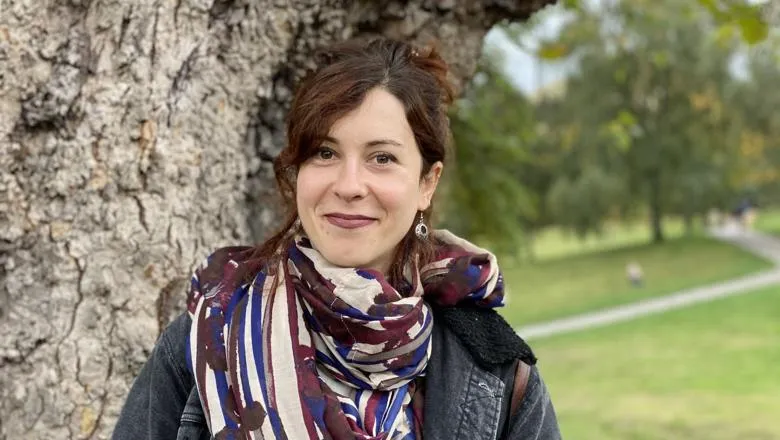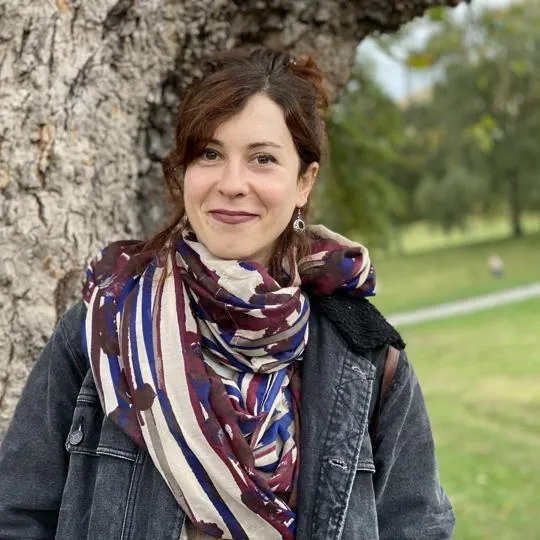01 June 2022
War Studies research associate receives Turing Post-Doctoral Enrichment Award
Ana Valdivia will analyse the relationship between artificial intelligence (AI), social justice and climate change.

Ana Valdivia, Research Associate at the Department of War Studies, has been granted a Post-Doctoral Enrichment Award from the Alan Turing Institute. Ana's recent research at King’s College London has focused on investigating the impact of AI systems for border control as part of the ERC project 'SECURITY FLOWS'.
The Alan Turing Institute Post-Doctoral Enrichment Awards (PDEA) are designed to facilitate postdoctoral activity throughout the UK and build the foundations for an engaged postdoctoral community working on topics related to data science and AI. The Turing's PDEA scheme provides development opportunities in three key areas: learning new skills, collaboration, and developing research independence.
Ana will use the Turing PDEA to organise a workshop about social justice, climate change and AI, together with Roel Dobbe (TU Delft), Bogdana Rakova (Mozilla Foundation) and María Pérez (UCL). The workshop will analyse the impact of AI ‘beyond the code’: from the natural resource extraction (necessary to build AI hardware) to electronic waste. The goal is to better understand the environmental and social impact of AI from a critical perspective, moving beyond the idea that this technology is neutral and does not contribute to climate change.
More broadly, Ana's research explores how datafication and AI is transforming social, economic, and political worlds in different contexts such as migration or criminal systems. She has analysed how biometric systems implemented for migration control impact on fundamental rights from a technical, ethical and political perspective, and has also designed algorithmic impact assessment tools that evaluate fairness in biometric systems. Ana led a collaboration with magistrates in Spain to understand the impact of gender-based violence risk assessment tools in the judicial system, featured at the Montreal AI Ethics Institute. Ana is also a research advisor at AlgoRace which aims to raise awareness about the impact of the use of AI on racialised populations.
For more information on AI at King's, visit the King's Institute for Artificial Intelligence.

